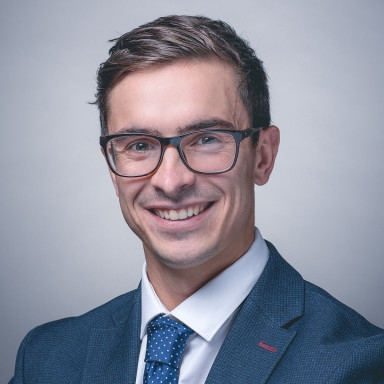Kirsty Desson has over 20 years of industry experience and has been lead manager since 2020 following her impressive contributions as co-manager
The team uses a disciplined and time-tested process to uncover hidden gems around the globe
Long-term performance has been strong but the fund struggled in 2022 where high inflation and high interest rates impacted returns
This fund features on our Wealth Shortlist of funds chosen by our analysts for their long-term performance potential
How it fits in a portfolio
abrdn Global Smaller Companies aims to grow an investment over the long term. Fund manager Kirsty Desson and her team hunt for the world’s big companies of tomorrow using a time-tested tool known as the ‘matrix’. By investing globally, the fund could offer diversification to a UK-focused investment portfolio with exposure to different regions and themes. While smaller companies have more room to grow than larger ones, they do carry more risk. This fund could also complement an adventurous growth-orientated portfolio investing in large or smaller companies.
Manager
Kirsty Desson has been the fund’s co-manager since February 2020, before being promoted to lead manager in December 2021. Her career began at Martin Currie in 2000 where she analysed companies in Asia and emerging markets. In 2012, she joined abrdn (which was then Standard Life) to focus on smaller companies within Asia, including Japan and emerging markets. Over this time, she’s built analytical experience and been heavily involved in the fund’s success.
Desson also supports Liam Patel on the abrdn international small cap fund. This fund is only available in the US and invests in a very similar way however, there is one key difference which is that it doesn’t invest in companies from the US. Given the similarities in approach we feel comfortable she can manage the workload of both funds.
The US accounts for a substantial part of the team's investment universe and is overseen by Anjli Shah and Domantas Butvilas. Shah is an investment director within the team and has over a decade’s worth of experience in the industry. Alongside this fund, she is also the manager of the Global Mid Cap Equity fund.
Process
Desson and her team hunt for companies around the world outside the usual candidates of large firms that dominate stock markets. They believe smaller companies have greater long-term growth potential and are relatively under-researched, so there’s plenty of opportunity to uncover the larger companies of tomorrow.
Hunting for sustainable growth over the long term means the team doesn’t invest in more economically sensitive parts of the market like energy or real estate. Their focus on quality leads them to companies with strong balance sheets and good management teams whilst avoiding those that are highly indebted or loss making. Momentum is also important, which means the team likes to run their winners and cut their losers.
To identify these attributes, they use a quantitative tool called the ‘matrix’ which whittles down the universe of over 6,000 companies. The matrix output is continually reviewed, and the most attractive opportunities receive further analysis and team debate. They focus on the data for individual companies, rather than broader economic views.
This results in a fund of between 40 to 80 companies, they currently hold 49. This means each holding can make a meaningful contribution, but it can increase risk. Currently 46.5% of the fund is invested in the US, although this is less than the global stock market. In contrast, they invest more than the stock market in other countries such as Japan, United Kingdom, and Germany. The managers also invest in higher-risk emerging markets and can use derivatives, which if used adds risk.
Desson has made several new investments over the last 12 months including the addition of US healthcare company Merit Medical. This was a name that was well known to the analyst team based in the US and had been scoring well on the Matrix. Also added was US payroll company Vertex. They provide tax solution software for small and medium sized businesses.
In contrast, Desson has sold US technology company Axcelis Technologies. Desson lost conviction in the company as they are exposed to a slowing auto sector as well as China where the recovery failed to materialise. Desson also sold Italian financial company Azimut after the company tried to enter a new market by applying for a banking licence. Desson thought this was strategically a bad decision and she had better ideas elsewhere.
Culture
The fund was previously part of Standard Life plc, until the business merged with Aberdeen Asset Management in 2017 to create Standard Life Aberdeen plc. This later became Aberdeen Standard Investments and in July 2021, the company changed name once again to abrdn in order to simplify and unite under one single brand. On 4th March 2025 the company announced a further rebrand, and will be called aberdeen going forward. They have confirmed that they do not intend to change any fund names over the short term though.
While mergers have the potential for disruption, we think the smaller companies team, which also includes UK and European funds, were relatively unaffected. There’s a collegiate feel to the smaller companies team at aberdeen. Members share research and ideas with each other, and work with one another to debate and challenge stock decisions.
ESG Integration
Although the manager's process doesn’t specifically exclude any particular area, ESG (Environmental, Social and Governance) considerations form a part of company analysis. The managers engage with companies where they feel there are serious ESG issues and use their right to vote at shareholder meetings.
aberdeen is a firm well known for its commitment to ESG. Responsible investing has been part of the business since it set up its Corporate Governance team in 1992 and launched its first ethical fund in 1994. We like that the firm’s policy positions on a range of divisive issues, from plastics and tobacco to palm oil and biodiversity, are easily available on their website. The firm also produces frequent ESG-related thought leadership articles, a podcast series and an annual Stewardship report.
We’re pleased to see that the firm’s commitment to ESG has filtered down to the fund level. abrdn fund managers generally see themselves as owners of businesses, not investors, and stewardship is an important part of their investment processes. The firm exercises all voting rights and engages with management to encourage best practice.
ESG and stewardship factors are included in every stock research note and each firm receives an ESG score, based on its ESG credentials and its ability to manage ESG risks. In fixed income, ESG risks are assessed and priced alongside other credit risks, and the managers encourage action that will reduce these risks. As with equities, each issuer receives an ESG risk rating. abrdn fixed income managers can invest in bonds issued by companies with a poor ESG risk rating, but require greater compensation via the credit spread. All managers have access to a central ESG team, as well as specialist on-desk analysts.
The company runs several exclusions-based and impact funds, which take their commitment to society, the environment, and other thematic investment goals a step further.
While we are comfortable that ESG associated risks are considered as part of company due diligence, this fund is not focused on sustainable investing.
Cost
The fund has an ongoing annual charge of 1.04%, but we’ve secured HL clients an ongoing saving of 0.27%. This means you’ll pay a net ongoing charge of 0.77%. The HL platform fee of up to 0.45% per year also applies, except in the HL Junior ISA, where no platform fees apply.
Performance
Since the fund launched in January 2012, it’s delivered some impressive returns. Over this period, it’s outperformed the IA Global sector average returning 278.36% versus 266.13 %*. Remember past performance doesn’t indicate future returns. Although the majority of this performance cannot be attributed to Desson, she’s played an important role, particularly in Japan, Asia, and emerging markets.
Given the focus on quality companies we expect the fund to hold up relatively well when markets fall. In contrast, we expect the fund to lag the peer group when markets rise quickly. However, this was not the case in 2022 when the market fell, and the fund performed poorly. The fund has a bias towards growth companies and therefore struggled as the market rotated to more value companies.
Over the last 12 months the fund has underperformed the sector average, returning 2.92% vs 9.68% for the IA Global sector. It is important to remember that the IA Global sector will also be made up of several large-cap funds. Large cap funds have typically outperformed funds that focus on smaller companies over this time period.
Desson’s investment in US technology company Axon Enterprise has contributed strongly to returns. They have benefited from the advancements in AI which has allowed them to offer new products. Their main product is body cameras for the police and with AI they can automatically transcribe what has been recorded saving time in officers taking notes manually. Japanese shoe company Asics has also done well. Strong quarterly earnings driven by robust sales numbers has meant the company’s share price continues to do well.
However, Mexican bank Regional was the largest underperformer over the last 12 months. The bank has struggled from geopolitical issues however, more recently the bank has started to recover and Desson is confident going forward. US solar panel company Nextracker who install solar panels that move in-line with the sun also performed poorly. Desson has decided to sell the company as there is too much uncertainty given America’s changing views on renewable companies.
Annual performance growth
29/02/2020 To 28/02/2021 | 28/02/2021 To 28/02/2022 | 28/02/2022 To 28/02/2023 | 28/02/2023 To 29/02/2024 | 29/02/2024 To 28/02/2025 | |
|---|---|---|---|---|---|
abrdn Global Smaller Companies | 42.23% | -3.90% | -6.56% | 3.83% | 2.92% |
IA Global | 23.41% | 6.96% | 2.01% | 12.40% | 9.68% |


